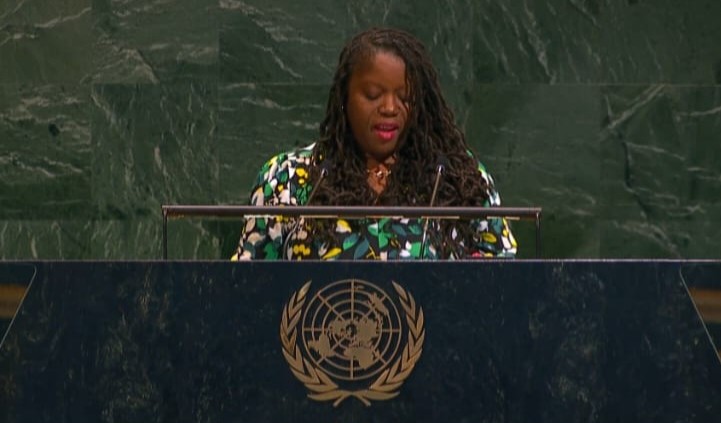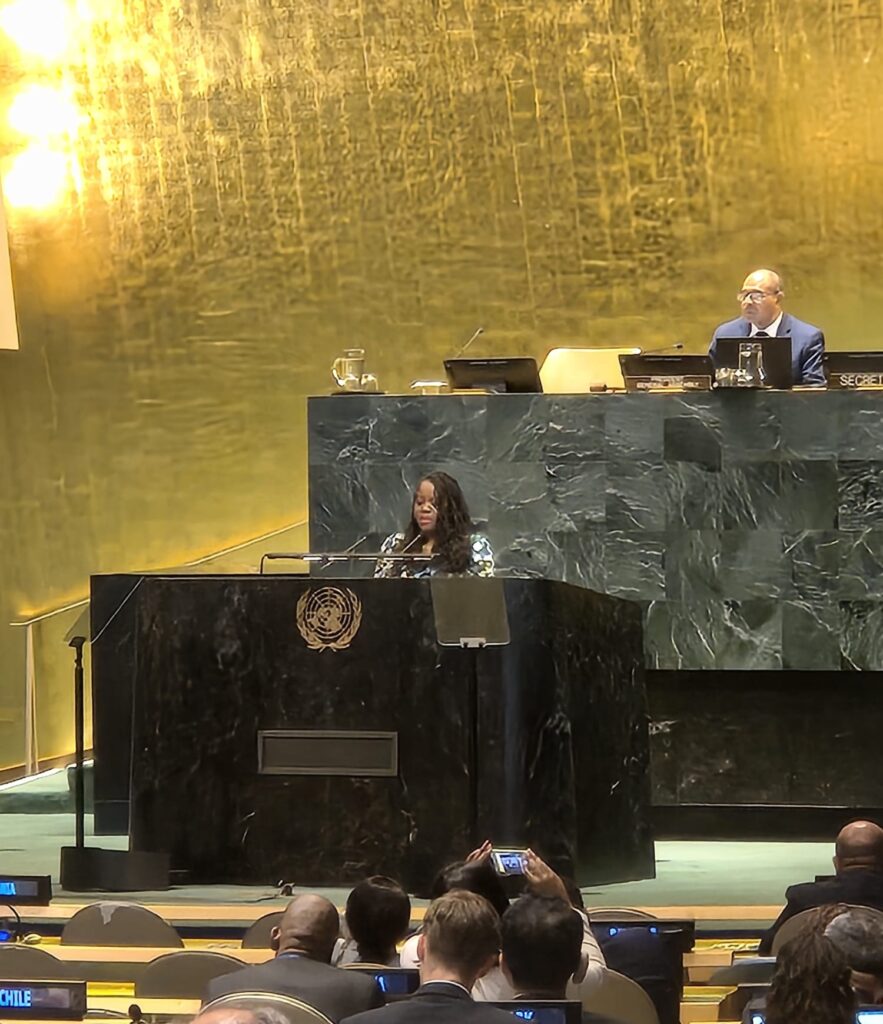United Nations, NY, June 27, 2025 – On June 26, 2025, the 80th anniversary of the signing of the UN Charter, St. Kitts and Nevis’ Ambassador H.E. Dr. Mutryce Williams delivered a commemorative address on behalf of the Caribbean Community (CARICOM) before the United Nations General Assembly.
In the address, Ambassador Williams said, “For the peoples of CARICOM, the UN charter is both a foundational text and a living covenant. We honour the legacy of the signing of the charter as the choice of unity over division and principle over power. The principle enshrined in Article 2-paragraph 1 of the charter-the Sovereign equality of nations-has informed the engagement of our community of small states to contribute to norm setting; to advance the issues that matter most to our people; and to help shape the global future. We have embodied the spirit of multilateralism-in championing deliberate peace; championing development; and defending the rule of law.”

In highlighting that we are in a moment of global governance as a new venture, she called on the United Nations to be, “more inclusive and responsive regarding current realities and evolve to address future risks.” She declared, “The Pact of the Future and the Antigua and Barbuda Agenda for SIDS present the opportunity for a renewed social contract.”
Ambassador Williams informed that CARICOM has a clear vision for securing the foundations of a stable, economically, productive, international community. She informed the august body that, “CARICOM will amplify its role regarding climate resilience; sustainable ocean governance; an equitably transformed international financial architecture; and the economics, governance, and our interface with emerging technologies that place people at the centre.”
She concluded the address by stating that CARICOM recommits itself to the UN charter to centering human dignity and to keeping pace with the realities of our times as they evolve, and stands by ready to contribute to shaping the next 80 years of multilateralism. The United Nations Charter (UN Charter) is a fundamental treaty of the United Nations and its system. Signed on June 26, 1945, and enforced from October 24, 1945. It serves as a cornerstone of international law and establishes the organization’s structure and principles. The Charter articulates the UN’s mission to maintain global peace and security, foster international cooperation, advance social progress, improve living conditions, and safeguard human rights. Moreover, it reaffirms key principles of international law, including customary international law.
The Preamble of the UN Charter Begins:
“WE THE PEOPLES OF THE UNITED NATIONS DETERMINED to save succeeding generations from the scourge of war, which twice in our life time has brought untold sorrow to mankind, and to reaffirm faith in fundamental human rights, in the dignity and worth of the human person, in the equal rights of men and women and of nations large and small, and to establish
conditions under which justice and respect for the obligations arising from treaties and other sources of international law can be maintained, and to promote social progress and better standards of life in larger freedom, AND FOR THESE ENDS to practice tolerance and live together in peace with one another as good neighbors, and to unite our strength to maintain international peace and security, and to ensure, by the acceptance of principles and the institution of methods, that armed force shall not be used, save in the common interest, and to employ international machinery for the promotion of the economic and social advancement of all peoples.”



